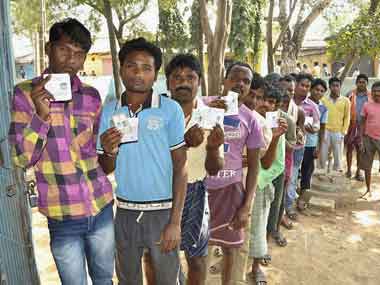The power of pre-poll surveys and opinion polls to influence voter behaviour in addition to breaking down complex public opinion and political mood in the run-up to a general election, is the reason there is such a premium placed on their credibility. Especially when the political class has already raised doubts over whether opinion polls are truly representative and whether they are completely credible, the slightest aspersion on their methodology casts a shadow over the entire process, starting with the motive of a media house commissioning the survey. So it’s hardly surprising that even pending a complete investigation into the allegations made against several survey agencies following a television sting by NewsExpress channel, the India Today group has suspended its partnership with the C-Voter agency for the coming Lok Sabha election. C-Voter was contracted to do a series of opinion polls for the India Today magazine and Headlines Today television channel. It is one of the 11 agencies tainted by the NewsExpress sting. C-Voter has partnered with the Times of India group and the India Today group in recent months. [caption id=“attachment_1238811” align=“alignleft” width=“380”]  Exercising their right to franchise. PTI[/caption] Before the Assembly elections of December, the Congress and some other political parties had sought a ban or regulation on opinion polls. The BJP, pegged by almost all polls as the biggest gainer this polling season, opposed such a ban hotly, stating that the ruling party was simply fearing defeat. The Election Commission had then sought the views of all parties. In the current ’expose’, NewsExpress claims to have conducted a sting operation that laid bare malpractices by 11 such agencies including C-Voter. Titled ‘Operation Prime Minister’, the sting operation showed that these agencies’ representatives could provide two sets of data for a price, one original and one manipulated. In one clip, C-Voter’s Yashwant Deshmukh, who later denied vehemently that C-Voter would ever indulge in such malpractices, is seen stating that 3 percent is the acceptable margin of error. “At best, we can put it to 5 percent” he says. It hardly matters that no single survey is currently suspect or proven to be manipulated – NewsExpress Editor in Chief Vinod Kapri himself says the objective was to ‘ expose the mindset and intent’ of the agencies, not cast aspersions on any one survey. According to the report, “Also on offer were increasing the margin of error to show a spike in seats; showing contradictory results projecting rival parties as leading the electoral race by creating separate companies; deleting negative data; and manipulating data to any extent at the behest of the client.” More worrying for TV channels and their viewers is NewsExpress’s claim that some of these agencies, when approached by the channel’s reporters pretending to be representatives or lobbyists for political parties , said they could manipulate data and then get the survey results aired on TV channels. The issue being discussed before the Assembly polls was the so-called “bandwagon effect”, the theory that people, especially the fence-sitters, will simply join the side pegged to win. Possibly, a string of hung houses could convince voters that a decisive vote is more valuable than one that is likely to be “wasted” on a smaller political entity. That is why we urgently require all commissioning media houses to raise the levels of transparency on such surveys – declare suo moto the methodology, the sample size, the sponsor and an explanation of what C-Voter’s Deshmukh referred to as “margin of error”.
What we need is greater transparency from commissioning media houses and survey agencies, on methodology, sample size and margin of error.
Advertisement
End of Article


)
)
)
)
)
)
)
)
)



